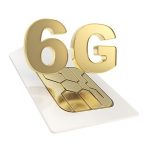Court Rejects BT Appeal over Ofcoms UK Network Access Costs Ruling
The Court of Appeal has largely rejected BT’s latest attempt to appeal two judgments of the Competition Appeal Tribunal (CAT) from June 2010 and March 2011, which challenged an Ofcom ruling that found the operator had charged rival ISPs too much for access to its network (i.e. Partial Private Circuits – trunk segments market).
A Partial Private Circuit (PPC) is a set of “network components that [an ISP] is able to buy from BT in order to provide a private circuit to a third party” (e.g. you the customer) and thus extend its network. Providers typically purchase PPCs to provide connectivity between their existing core network and their “end-user customers in locations where they have no direct access network“.
Advertisement
Ofcom originally (2008) ruled in favour of BT’s rivals – Cable & Wireless UK, Virgin Media, Global Crossing, Verizon UK and COLT – by finding that BT’s related prices were “significantly above the competitive level” and thus “there was a risk that BT might fix and maintain some or all of its prices at an excessively high level, or impose a price squeeze, with adverse consequences for end-users“. It also moved to correct the operator’s charges.
Naturally BT stood to lose money and took the matter to a Competition Appeal Tribunal, which ultimately dismissed their argument that Ofcom did not have legal power to deal with “historic disputes” (this was found to be not “seriously arguable“) and its appeal against Ofcom’s original determination. The CAT said that BT had failed to “demonstrate to Ofcom the required cost orientation” and that left Ofcom’s alternative model as “the only satisfactory available course“.
Court of Appeal Statement
“In any event, in the light of the arguments raised on behalf of BT on this appeal which I have rejected, and on the facts as found by the Tribunal, I can see no proper basis for reaching a different conclusion from both Ofcom and the Tribunal on the remedy they considered appropriate.”
So after a long running battle the Court of Appeal today ruled that it “would refuse permission to appeal“. Credits to OUT-LAW for spotting this development.
Court of Appeal Ruling (CASE:C3/2011/1683)
http://www.bailii.org/cgi-bin/markup.cgi?doc=/ew/cases/EWCA/Civ/2012/1051.html..
Mark is a professional technology writer, IT consultant and computer engineer from Dorset (England), he also founded ISPreview in 1999 and enjoys analysing the latest telecoms and broadband developments. Find me on X (Twitter), Mastodon, Facebook, BlueSky, Threads.net and Linkedin.
« Hampshire UK Council Offer Grants for Alternative Rural Broadband Services
















































Comments are closed